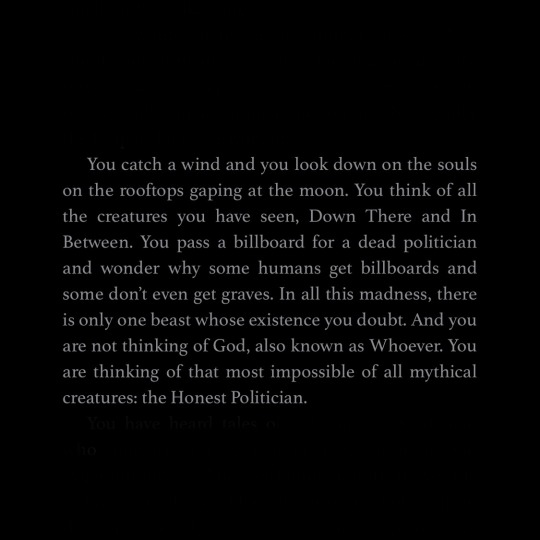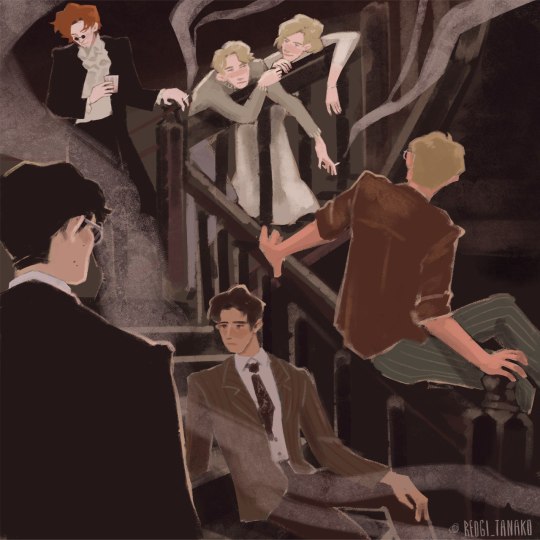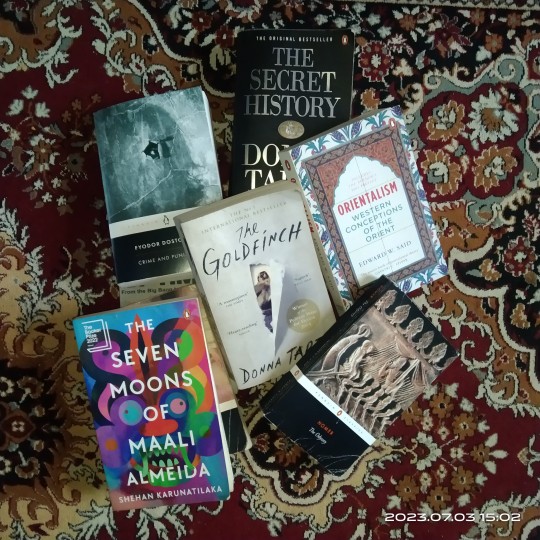Text
What happens when we die? Do we float into a massive abyss of nothingness, or are we at a state of perennial impass? Is there even an afterlife, and if so, is it subjective to corresponding religions? Is there Hades, Osiris, Yama or Pluto deciding our fate? If so, is it a bureaucratic system where we stand in queues, and do we get the choice of rebirth? Shehan Karunatilaka's 'The Seven Moons of Maali Almeida' doesn't answer any of these questions, and yet by the end of it you're left in peaceful serenity with yourself.
Seldom do we come across a text that does so many things all at once, and more importantly, does all of it incredibly well. I mean you can simply pick it up as a kind of detective murder mystery, a political satire, or maybe even an action thriller...? The second person narrative is a bit distancing I'll agree, but then there's this interesting sense of humour to make up for it. And obviously, it's the tale of Malinda (Maal) Almeida who's dead, and finds himself in the afterlife, with seven moons to sort his affairs on the mortal plane and pass into 'The Light'. Karunatilaka sets his plot in 1980s Sri Lankan civil war, with the Tamil and Sinhalese at each other's throats and Maali the bastard son of both. Not to mention about him being a closet gay.
Maali is not perfect, he's a debauched gambler, regular drug abuser, in his own language 'a slut', and an A+ photographer. And now that he's dead, he must find out his murderer(s), and get his photos published (that he claims can topple governments) and reach the light, all before his seven moons are over. It's impressive how Karunatilaka creates each character with such detail: The political ideologist dead JVP worker Sena, the murdered voicist professor Dr. Renne, Amma, DD, Stanley and so many others. And how all have demons, some of which sit on the bonnet of a car. It is really a narrative that must be explored by the reader on their own, mostly because each will have their own say in the matter. And howsoever you choose to read it, remember that it's not really the ghosts or pretas or monsters or demons to be feared, but in Maali's own words:
"Evil is not what we should fear. Creatures with power acting in their own interest: that is what should make us shudder.”

6 notes
·
View notes
Text

Shehan Karunathilaka, The Seven Moons of Maali Almeida
10 notes
·
View notes
Text
Those who aim to destroy. Only destroy themselves.
THE SEVEN MOONS OF MAALI ALMEIDA, 330
15 notes
·
View notes
Text
All stories are recycled and all stories are unfair. Many get luck, and many get misery. Many are born to homes with books, many grow up in the swamps of war. In the end, all becomes dust. All stories conclude with a fade to black.
Shehan Karunatilaka, The Seven Moons of Maali Almeida
25 notes
·
View notes
Text
We must all find pointless causes to live for, or why bother with breath?
Because, on reflection, once you have seen your own face and recognised the colour of your eyes, tasted the air and smelled the soil, drunk from the purest fountains and the dirtiest wells, this is the kindest thing you can say about life.
It's not nothing.
- Shehan Karunatilaka, The Seven Moons of Maali Almeida.
16 notes
·
View notes
Text
Just a reminder to all the dark academia bitches that our season begins very soon

599 notes
·
View notes
Text

'Does such a thing as 'the fatal flaw,' that showy dark crack running down the middle of a life, exist outside literature? I used to think it didn't. Now I think it does. And I think that mine is this: a morbid longing for the picturesque at all costs.'
(love this book, some real dark academia vibes)
865 notes
·
View notes
Text
"I did not like to be touched, but it was a strange dislike. I did not like to be touched because I craved it too much. I wanted to be held very tight so I would not break."
- Marya Hornbacher, "Wasted" @silentroad
31 notes
·
View notes
Text
“My life as I lived it had often seemed to me like a story that had no beginning and no end. I had the feeling that I was a historical fragment, an excerpt for which the preceding and succeeding text was missing. I could well imagine that I might have lived in former centuries and there encountered questions I was not yet able to answer; that I had to be born again because I had not fulfilled the task that was given to me.” — Carl Jung
(Quote from Chapter 2 of ‘Only Love is Real’ by Brian Weiss)

15 notes
·
View notes
Text

Happy Sunday
2 notes
·
View notes
Text
Jesus! why am I not in my femme fatale era already? 😑
5 notes
·
View notes
Text
“The aim of argument, or of discussion, should not be victory, but progress.”
— Joseph Joubert
259 notes
·
View notes
Text
Henry vs Julian
I have been thinking about this a lot. While Henry clearly admires and models his scholar self on Julian, their essential difference is in how they perceive the Ancient Greeks.
Julian's interest in the Ancient Greeks is true interest, he admires their high and exalted values. For him, the Greeks were the highest point of human civilization, and the closer he comes to his own time the more his disdain increases - the Roman Catholic Church he holds in contempt but it's still a 'worthy enemy' not as bad as the Presbyterian Church. It isn't mentioned but he must hold modernism and it's philosophy with disdain - modernist moral vacousness being a direct contradiction of the idealist values loyalty, honor, chastity etc. that were so exalted by the Greeks. Which is why he is always cherry picks, sees only what he wants to see, and invents what he can't - both for himself (his ambiguous involvement with the Isrami government) or for his students (encouraging Richard to lie about his life in California). Since he can't time travel back to Greece himself, he must try to live that life as much as he can and believe himself a character in a Greek play. But it comes, not from a place of wanting to escape his current reality, but true admiration of the ancient Greek way of seeing and doing things.
Henry is a true modernist. The monologue about feeling dead is central to his understanding his character:

Maybe it stems from his near death experience but he sees the world as inherently meaningless, God is dead and heaven and hell have been revealed to be man-made constructs, there is no punishment for evil and since there is no moral line. I think he subconsciously realised all of this before coming to Hampden, but to truly accept it would have been soul-crushing. So he tries to escape it by immersing himself in the Greeks, I imagine the absolutist values, vague representational ideas pertaining to each god might have interested him but really, it could have been anything else, the Medieval Age or the Victorians, anything. He just needed something to be obsessed with, to give meaning to his existence which he subconsciously knew to be meaningless. So is his adoration of Julian, he admired and wanted Julian's ability to almost half-live in another time when, in his view, things mattered more (we have divinity in our midst). It also explains the Bacchanal which is otherwise so out of character for him. The appeal was to escape the soul crushing knowledge of meaninglessness - even if for a while. To worship and call on Dinosiyus with the blind belief of the Ancient Greeks, a kind of belief that simply cannot exist anymore in the postmodern, post-Neitzche world. His harebrained plans also came from the same impulse, including the poison plan, and the one way ticket to Argentina.
I suspect that what subconsciously drove him to murder bunny, aside from the obvious fear of getting caught - is the same thing that drove Mersault to murder the Arab - it's the old existentialist question, if good and bad are relative and there is no punishment for evil, how far can one go? Bunny's murder was Henry's existentialist experiment with himself. And, I think in a way it confirmed for him what he already knew, they escaped unscathed and he didn't feel any of the fear or remorse he expected to feel. While it did give him the momentary sense of power, the feeling that he could now do whatever he wanted if he can be clever enough to not get caught, since he won't be punished for it otherwise. While it gave him enough courage to go get the girl he always wanted - it did confirm for him the inherent meaninglessness of the world. Also, conversely, Camilla could have been another experiment - something must matter, was it love? Camilla was the only girl he knew and he was fond of her - he may not even have thought of her romantically before considering he never cared to act on it in all the time he had known her. But either way, Julian's abandonment broke him.
Coming back to Julian, Julian's abandonment omakes perfect sense to me - he was disgusted by the modernist moral vacousness in his students. He himself was a moral man, but his morals operated on his own standards. He based it on the Greek sense of Honour, not the more modern sense of Justice. His basic instinct was the preservation of his own purity - he couldn't possibly keep on as their teacher. But also, to turn them in would be against his sense of honour - he must have very little respect for the police and law enforcement as institutions being the kind of person he is. Not to mention it would mean his having to be in frequent contact with the police and court. From his point of view atleast, leaving is the only thing he could have done, really.
For Henry however, he sees that his obsession with the Greeks as well as his admiration for Julian as the sham that it really was, is disillusioned with the world, shattered. Except for his fondness for Camilla he didn't really have anyone he loved, he saw his friends as pawns, wasn't close to his family, didn't have any goals in life with everything in his reach with his father's money - the only person he had really loved was Julian, and there he was betrayed. His obsession with the ancient Greeks was also thus tainted with Julian's betrayal - since it wasn't true interest at all, only a disguised attempt at escapism - it wavered and fell apart, and he didn't have a reason to live anymore.
.
Side note : Richard falls between the two. Like Julian, he had a real interest in the ancient Greeks, but he didn't put them on a pedestal like Julian did. He realised that like his own time, and like all other times in history the Greek civilization too had its own good and bad aspects, and he wanted to learn about it for its own sake. But he doesn't make it his life, or use it to escape his own reality - outside of his classes he was very much rooted in his own time.
470 notes
·
View notes
Text
friendship ended with bertolt brecht now antonin artaud is my best friend 🫶
4 notes
·
View notes



